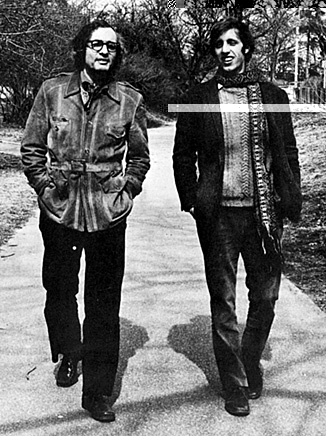The background
The “contrived accident"
The case
New developments
The purpose
The project
Preparation
The book
Related activities
Possibilities & limits

Preparation
This is an ambitious project, but my preparation to undertake it has been a long one.Before the initial facts about my father’s case had emerged, when I was in graduate school at Harvard, I had already collaborated on many research and writing projects with Yale University psychiatrist and psychohistorian Robert Jay Lifton that have a dramatic, almost uncanny relevance to the work I am currently pursuing. Lifton’s early book on brainwashing (Thought Reform and the Psychology of Totalism, 1961), his subsequent work on the psychology of survivors (including Death in Life: Survivors of Hiroshima, 1967; Home from the War: Vietnam Veterans, Neither Victims nor Executioners, 1974; The Broken Connection: On Death and the Continuity of Life, 1983), and his later book on Nazi medical experimentation (The Nazi Doctors, 1986), provide uncannily pertinent models for investigation of and reflection upon my father’s case.
Lifton and I co-authored one of the early books on the psychology of dying (Living and Dying, 1974), co-authored an article in the medical journal Psychiatry on the survivors of the 1972 Buffalo Creek West Virginia flood (“The Human Meaning of Total Disaster: The Buffalo Creek Experience”), and co-edited Explorations in Psychohistory. Lifton dedicated a book on innovative psychological theory on which I labored intensively, The Life of the Self: Toward a New Psychology (1976), to me.
This picture of Robert Lifton and me walking in Central Park was used on the book jacket for our 1974 book, Living and Dying. The story of the CIA's involvement in my father's death exploded a year later.
Hear historian Lawrence Friedman discuss the work of psychologist Erik Erikson, which was the most important influence on the psychohistory of Robert Lifton.
My Harvard M.A. degree in teaching, and my interdisciplinary Harvard Ph.D. in “Clinical Psychology and Public Practice” (1976) now seem to have been specifically designed to prepare me for the complex project into which this case has thrust me. In my 1976 doctoral dissertation, "The Mind's Collage: Psychic Composition in Adult Life," I proposed a way in which psychoanalytic clinical procedure might be refashioned, partly in response to the sorts of theoretical and empirical problems raised by Lifton's historically based observations. After Harvard I established a clinic in Cambridge, Massachusetts in which to pursue this research. My professional career has included college teaching, psychological research and writing, and psychotherapeutic practice.

